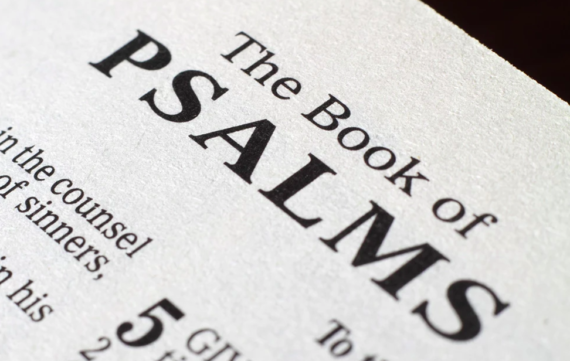Let us first consider how this psalm may have been used in Israel.
The background of Psalm 20 is best understood by reading 2 Chronicles 20. Israel was a tiny nation. Powerful enemies surrounded it. It was a crossroads nation. When the major empires of the time went to fight one another, they often met in or near the Promised Land. So, invasions were common. Other faithful kings may have done what Jehosphat did in 2 Chronicles 20 — put worship ahead of battle, relied on God.
In such a service, this Psalm might have had a part. 2 Chronicles 20 indicates that fasting, admissions of weakness, and calls upon God to glorify himself — by defending his people — were part of the service.






It has been suggested that this psalm may have been used in a set liturgy of pre-battle worship. Verses 1-5 might have been recited while the king offered sacrifices, incense, and prayers.
“May the Lord answer you in the day of trouble! May the name of the God of Jacob protect you! 2 May he send you help from the sanctuary and give you support from Zion! 3 May he remember all your offerings and regard with favour your burnt sacrifices! 4 May he grant you your heart’s desire and fulfil all your plans! 5 May we shout for joy over your salvation, and in the name of our God set up our banners! May the Lord fulfil all your petitions!” (1-5)
Verses 6-8 might have been spoken by the king or by the priest leading the worship as an expression of confidence that the Lord heard their prayers.
“Now I know that the Lord saves his anointed; he will answer him from his holy heaven with the saving might of his right hand. 7 Some trust in chariots and some in horses, but we trust in the name of the Lord our God. 8 They collapse and fall, but we rise and stand upright.” (6-8)
The final verse might have been spoken by all in unison. “O Lord, save the king! May he answer us when we call” (9).
Now, let us consider how we might use this Psalm today.
No nation existing at this moment is the successor to the theocracy of Israel. This Psalm might be of use in times of national emergency, but this is not its primary modern value. Our modern secularized nations are unlikely to use it in this way.
The faithful church is Israel’s successor, much more than any nation could be. Galatians 6:16 refers to the church as “the Israel of God.” It is not the visible church, it is not the membership list church, but those who have placed their trust in Christ that Paul implies are the true, Christian era, Israel.
The church is embattled today. It is a tiny nation, surrounded by powerful enemies, standing at a crossroads of history. Attacks are common. We respond to the attacks in a number of unfruitful ways.
We, like some of the kings of Israel, make unholy alliances to protect ourselves. We paint ourselves to look like the world, hoping that the world will accept us as one of their own. This is the reaction of Ahaz (Isa 7). While we should not needlessly antagonize the world (Rom 12:18; 1 Cor 9:19-23), the effort to defend ourselves by unholy alliances is self-defeating. It separates us from God’s help.
Sometimes we try to do better at what we can control. We study communication, advertising, psychology, and education. Certainly, Israel’s kings made reasonable preparations for battle, but this was not to be primary. Certainly, we should use the best means at our disposal. But we should not rely on those means.
Sometimes we simply avoid engagement with the world. Retirees and full-time ministers may be able to avoid the world. But others, especially the youth, cannot avoid engagement with the world. When portions of the church attempt to simply avoid the battle, it leaves the younger generation unprepared to fight. Seeing no example of how to engage the world, they surrender, and within a generation the church is either out of business or in business as a respectable form of paganism.
While there is considerable value in doing what we can do in battle with the world we must do so in faith. We should recite this Psalm in connection with admissions of weakness and pleas that the Lord would defend his name by delivering his people. As a church, as individual Christians, and as families, let us boldly state our reliance on him.
Much has changed since this Psalm was first sung. But the fundamental things are still the same. God’s kingdom is still a tiny nation surrounded by powerful hostile forces. We are still called on to rely on him rather than on our skills and strategies. Let us use this psalm. Let us join in saying, “Some trust in chariots and some in horses, but we trust in the name of the Lord our God.”

